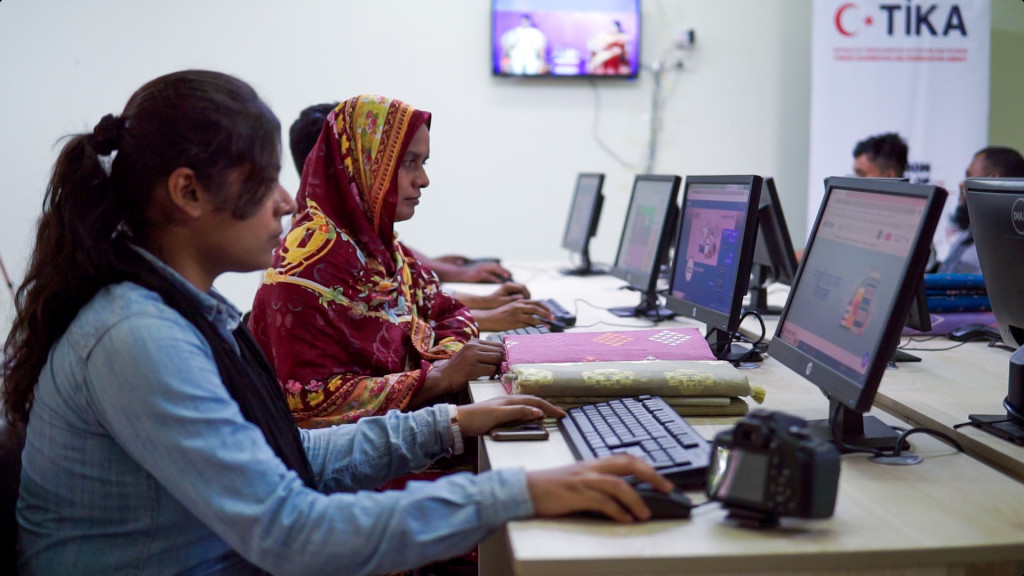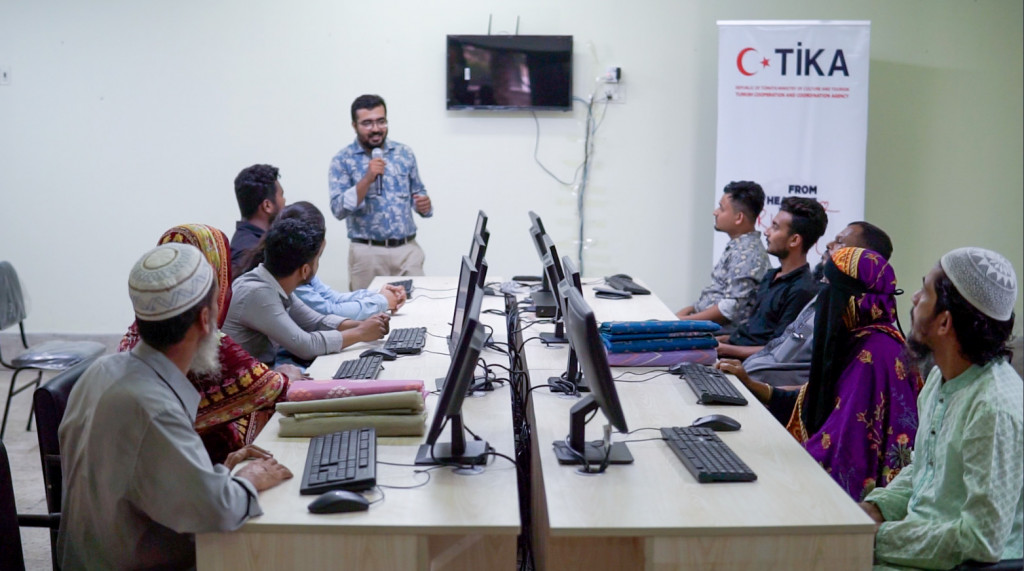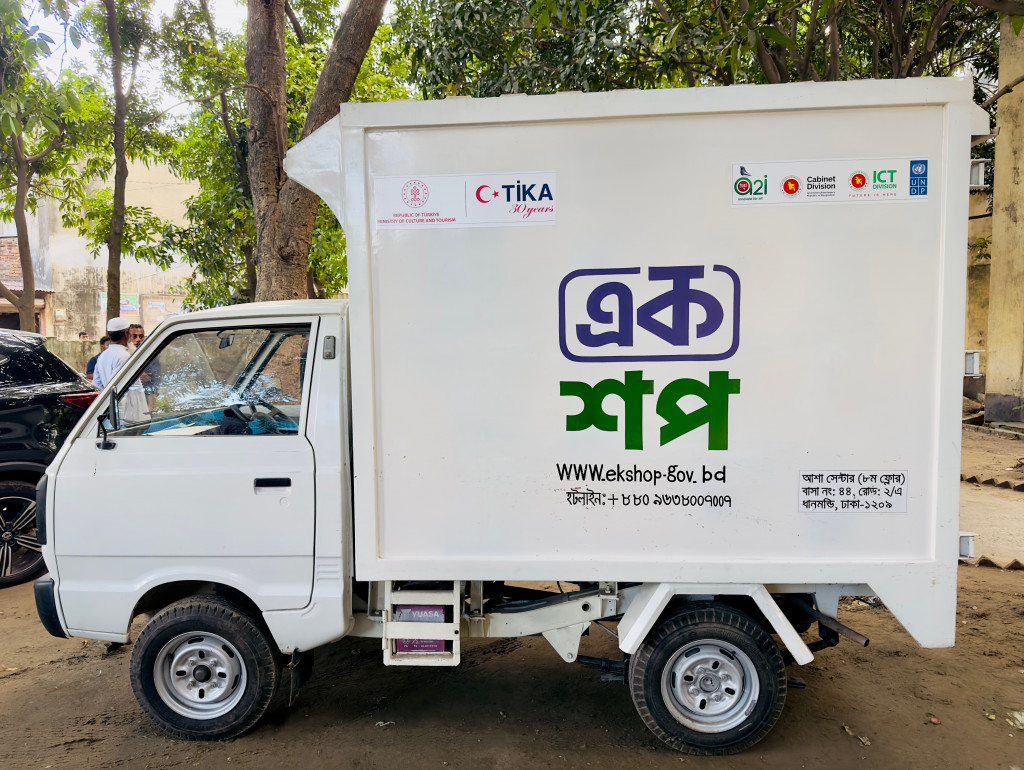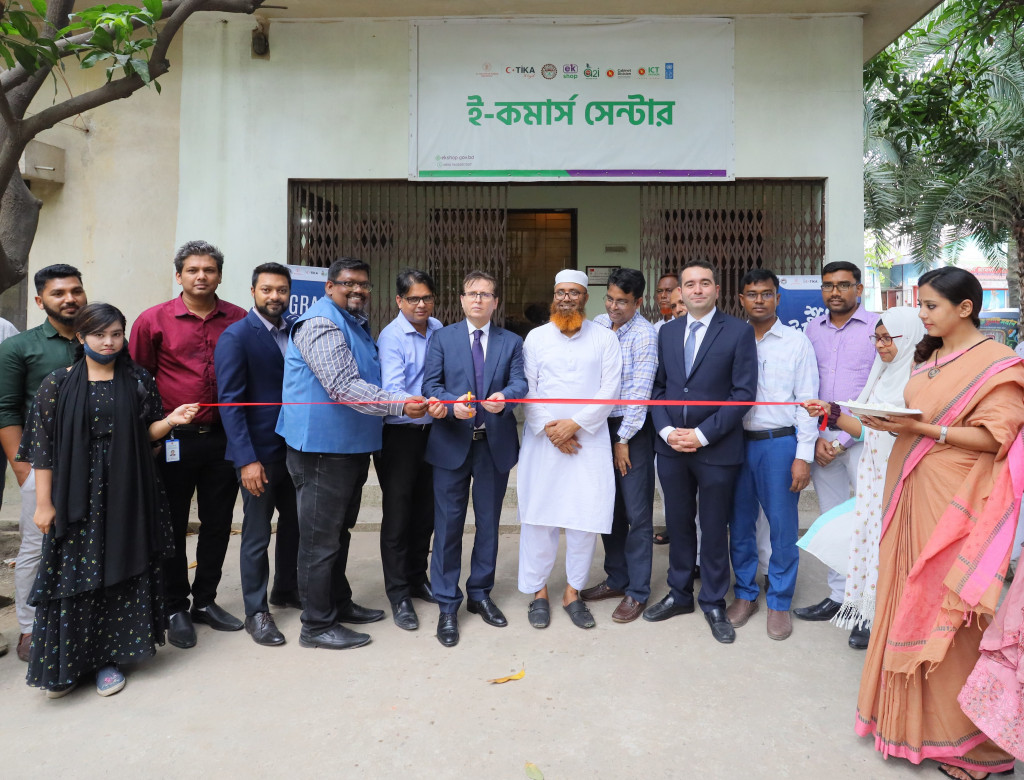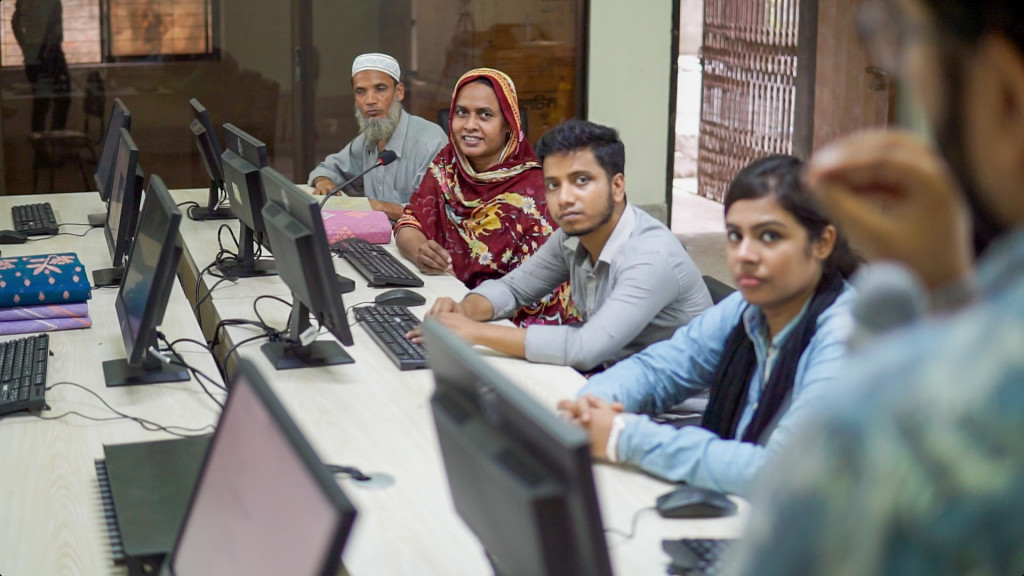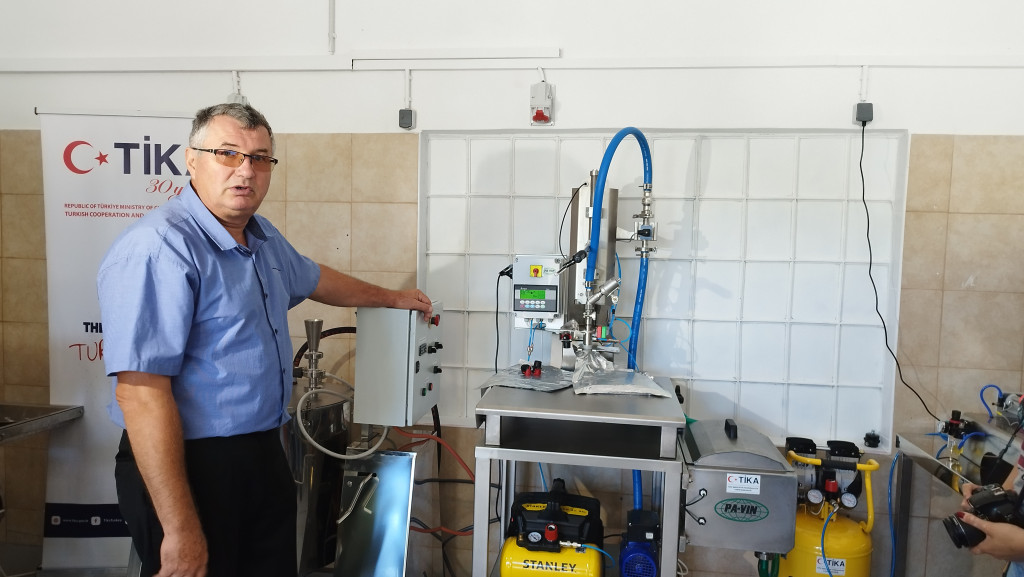News
02 August 2023TİKA Supports Electronic Commerce Development in Bangladesh
"The E-Commerce Facilitation Center", established in the Narayangonj region in cooperation with the Turkish Cooperation and Coordination Agency (TİKA) and the government of Bangladesh, was brought into service.
The opening of the E-Commerce Facilitation Center, established by the government of Bangladesh and TİKA in the Narayangonj region, was held with the participation of Türkiye's Ambassador to Dhaka Ramis Şen, the Deputy Secretary of the Ministry of Information and Communication of Bangladesh Saiful İslam, TİKA's Coordinator in Bangladesh Şevki Mert Barış, and authorities from Small and Domestic Producers Institution of Bangladesh.
TİKA provided the required information and storage equipment for the center established in the Narayangonj region where jamdani, which is on UNESCO's List of the Intangible Cultural Heritage of Humanity and one of Bangladesh's important traditional arts, production is commonly made.
In addition, a delivery car was also provided for the jamdani weavers to deliver their products safely to the customers.
The center aims to enable the producers, who find the opportunity to have access to online market places, to deliver their products to bigger markets by participating in promotion and marketing trainings.
The growing e-commerce sector in Bangladesh is expected to exceed the market size of $3 billion in 2023, which was $2.07 billion in 2020. On the other hand, the presence of SMEs, which correspond to 20% of GNP and 80% of employment, in the sector appears to be inconsistent with the numbers provided. Only 30% of the approximately 30 million SMEs have access to the internet and can use official financial channels. Setting up an e-commerce platform called ekShop (https://www.ekshop.gov.bd/) to overcome this problem, the government of Bangladesh aims to facilitate access to markets and logistical opportunities by rural entrepreneurs in particular through the platform, as well as to improve capacity. Entrepreneurs, vendors, buyers, payment channels, and logistics companies, which become a part of the shopping process owing to the platform, are able to meet safely and take action.
